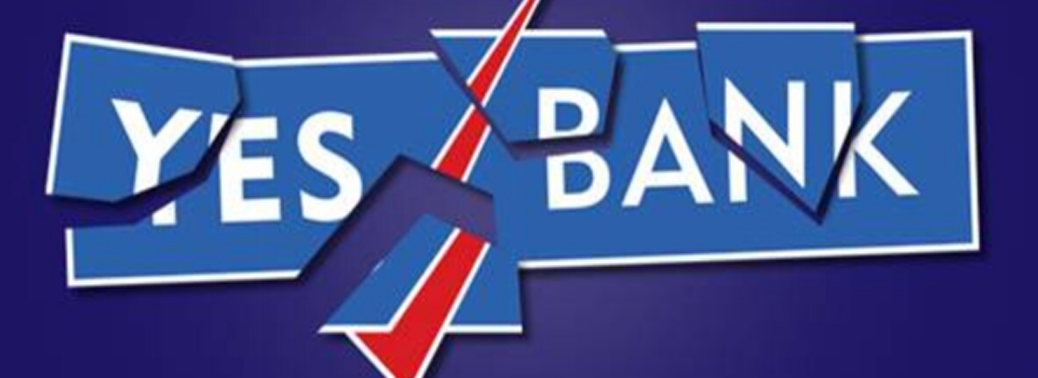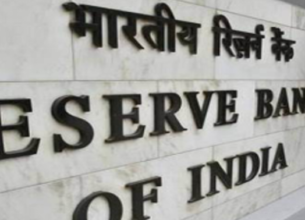YES BANK CRISIS
07, Mar 2020

Prelims level : Banking
Mains level : GS-III Indian Economy and issues relating to Planning, Mobilization of Resources, Growth, Development and Employment.
Context:
- Recently, the Reserve Bank of India (RBI) on March 5 imposed a moratorium on the private sector lender Yes Bank, limiting withdrawal of deposits to Rs 50,000. The RBI has also superseded the institution’s board of directors and had imposed a 30-day moratorium.RBI has appointed Prashant Kumar, former CFO of State Bank of India as its administrator.
What’s a Moratorium?
- It means the bank’s normal operations including lending and deposit mobilization are restricted.
- Under Section 45 of the Banking Regulation Act 1949, the one-month moratorium imposed on Yes Bank came into effect from March 5 and will be on till April, 6.
- During this period, deposit withdrawals are capped, while the bank cannot give fresh loans or renew existing loans besides others
Why did Yes Bank Collapse?
- Deteriorating Financial Position
- The bank was making losses and inadequate profits for consecutive quarters
- The bank was unable to raise capital to address potential loan losses and resultant downgrades
- In FY’19 alone, it reported a divergence of Rs 3,277 crore in bad loans and Rs 978 crore in NPA provisions.
- Governance Issues:
- The bank has also experienced serious governance issues and practices.
- In 2018, the RBI refused to give Yes Bank’s boss Rana Kapoor an extension as chief executive and managing director due to his highly irregular credit management practices.
- Failure in Raising Capital
- There was no concrete proposal from investors to put the kind of money that the bank required to survive and grow.
- In August 2019, it raised Rs 1,930.46 crore through qualified institutional placement (QIP), but this only scratched the surface of what it needed.
- Outflow of Liquidity
- The bank was facing regular outflow of liquidity due to withdrawal of deposits from customers.
- Although the government has limited withdrawals from Yes bank accounts to a maximum of Rs 50,000 per month, the deposits with Yes Bank are insured for up to Rs 5 lakh by the DICGC.
- Budget 2020 proposed to increase insurance coverage of deposits with scheduled banks from Rs 1 lakh to Rs 5 lakh by Deposit Insurance and Credit Guarantee Corporation (DICGC).
- DICGC came into existence in 1978 after the merger of Deposit Insurance Corporation (DIC) and Credit Guarantee Corporation of India Ltd. (CGCI) after passing of the Deposit Insurance and Credit Guarantee Corporation Act, 1961 by the Parliament.
- It serves as a deposit insurance and credit guarantee for banks in India.
- It is a fully owned subsidiary of and is governed by the Reserve Bank of India.
- What DICGC does?
- DICGC charges 10 paise per ₹ 100 of deposits held by a bank. The premium paid by the insured banks to the Corporation is paid by the banks and is not to be passed on to depositors.
- DICGC last revised the deposit insurance cover to ₹ 1 lakh on May 1, 1993, raising it from ₹ 30,000 since 1980. The protection cover of deposits in Indian banks through insurance is among the lowest in the world.
- The Damodaran Committee on ‘Customer Services in Banks’ (2011) had recommended a five-time increase in the cap to ₹5 lakh due to rising income levels and increasing size of individual bank deposits.
- Budget 2020 proposed to increase insurance coverage of deposits with scheduled banks from Rs 1 lakh to Rs 5 lakh.
- What kind of deposits are covered
- DICGC covers all deposits such as savings, fixed, current, recurring and so on except for the following deposits:
The safety of the Depositors:
Deposit Insurance and Credit Guarantee Corporation (DICGC):
1.Deposits of foreign governments;
2.Deposits of Central/State Governments;
3.Inter-bank deposits;
4.Deposits of the State Land Development Banks with the State co-operative bank;
5.Any amount due on account of and deposit received outside India
6.Any amount, which has been specifically exempted by the corporation with the previous approval of Reserve Bank of India







